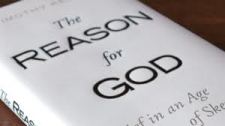Book Discussion of Christopher Norris’ “Epistemology: Key Concepts in Philosophy”
Chapter 3: ‘Fog Over Channel, Continent Isolated’: Epistemology in the ‘Two Traditions’ – Section II.
Part 1: Duhem (this will be followed by Part 2: Koyré, though Norris didn’t split section II into parts).
So, few folks these days think the ‘continental’ and ‘analytic’ (Anglophone) traditions are worlds apart. Mostly that attitude was held by positivists like Rudolf Carnap back in the day (1930s)-and then Wittgenstein-influenced empiricists of the linguistic turn (1950s) “that found no room for the overly ‘metaphysical’ tendencies of continental thought.” Carnap saw Heidegger (and others) as offering “inflated rhetoric and … meaningless pseudo-statements” and thought Husserlian phenomenology bore some analytic resemblances but “strayed from the path of empirical method and logical rigour into various ‘psychological’ excesses.” This charge was taken up more by those who “endorsed Frege’s criticisms of Husserl…This despite Husserl’s strenuous insistence that his was a rigorously argued project of transcendental phenomenology which entailed a radical suspension or putting-into-doubt of all merely psychological attitudes, beliefs or modes of thought.” So, though Husserl “bears analytic resemblances” a rift is maintained-why? In a nutshell…
Eventually it became group-reinforcing to say continental epistemology went wayward with Kant, construing “the theory of knowledge as having to do with a priori intuitions, ‘concepts of understanding’, and suchlike dubious appeals to the supposed self-evidence of first-person apodictic warrant.” Analytics thought we should stick with the scientific method, which took the “self” out of the picture and required verification. With a similar attitude, Quine attacked the last two dogmas of empiricism-the analytic/synthetic dichotomy, and the idea that “observation-statements or predictions could be checked one-by-one against discrete items of empirical evidence.” That any statement/theory could be saved by adjusting parts of the ‘web of belief’ was thought to be the end of empiricism, but he “came out firmly in support of the empiricist position…by adopting a thoroughly naturalized (behaviourist) approach to epistemological issues and avoiding all forms of ‘metaphysical’ obfuscation.” One example of such obfuscation: “the typically continental idea that epistemology must have to do with intuitions or thoughts ‘in the mind’ of this or that individual knower. Similar objections were later raised by followers of Wittgenstein who took the view that any such appeal must involve some version of the ‘private language’ (or privileged epistemic access) fallacy.” “Most often the quarrel was played out along familiar British-empiricist versus continental-rationalist lines, with Cartesian dualism (and its notion of privileged epistemic access) figuring as the chief source of philosophic error.” The privileged access fallacy is not explained, and I didn’t get it when I read about it elsewhere (can you read my mind?), but I’ll revisit it soon and see if I can figure it out.
The Duhem-Quine thesis (in epistemology and philosophy of science) is a link between the continental and analytic traditions. “In [Pierre Duhem’s] earliest publications…his thought manifested…a disdain for ontological commitments (such as atomism) which went beyond the empirical evidence and-concordant with that-a fixed aversion to any form of ‘metaphysical’ realism which claimed to reveal the ultimate nature of things or the underlying causal powers that explained phenomenal appearances.” He was inclined toward “a Machian (positivist) view.” Quine naturally receptive. Norris’ description of Duhem’s position sounds very much like Quine’s thoughts on “theory-ladenness” and theories being “undetermined”, and the “web of belief” explained in an earlier chapter.
1. Thesis subject to widespread debate/criticism-“it appears to undermine the rationality of theory-choice and to deprive science of any normative standard by which to adjudicate rival truth-claims or hypotheses.
2. “It comes rather sharply into conflict with certain of Duhem’s working principles as a physicist, among them his theory of thermodynamics as providing a unitary framework-or grounding rationale-for the entirety of physics and chemistry.”
So some folks think it shouldn’t be called the “Duhem-Quine” thesis-that Duhem’s name should be left out of it.
However, Duhem does lean that way later on in his politically motivated book German Science (Duhem was French) where “he champions the ‘typically’ French preference for a find-tuned balance of commonsense, intuition and rational procedure as against the ‘typically’ Germanic style of rigorous axiomatic-deductive thought. In support of this claim Duhem calls Pascal to witness on the two supposedly distinct mentalities-‘l’esprit de Wnesse’ and ‘l’esprit geometrique’-which he (Duhem) takes to characterize the French and German approaches to science.” (was that French?-I don’t parlevoo) So there’s a tension between his methods/practice as physicist (“his commitment to the values of rigour, objectivity and truth”), and his thoughts on the history and philosophy of science (“his attraction to an instrumentalist doctrine which has at least something in common with the ruse whereby Galileo was required to affirm not the truth but merely the ’empirical adequacy’ of the heliocentric hypothesis”).
Duhem made an effort to “reconcile the claims of philosophy” (“the long-run scientific ‘context of justification'”) “and history of science” (“conditions obtaining in the original ‘context of discovery'”). He didn’t want to collapse the distinction, or the (‘strong’ sociologist) idea “that scientific truth-claims are subject to assessment by standards quite distinct from those deployed by social or cultural historians.” Even so, his work has been used to support such a collapse because of its association with Quine’s naturalism and hence (though Quine would reject it) Kuhn’s paradigm-relativism.
*****
Here’s some timely input:
Well, I think the ‘private language’ debate is a bit of a red herring or distraction from more important matters, like so much in late Wittgenstein, but there is a kind of plausibility about saying – as he does – that nobody could ever understand a ‘private’ (purely first-person, entirely unshared, hence non-communicable) ‘language’ since even the solitary speaker/listener wouldn’t have command of the various conventions (grammatical, semantic, pragmatic, etc.) by which to make sense of it. Still Wittgenstein typically does more to muddy the waters and bamboozle his numerous commentators than to sort things out in a constructive way.
— Professor Norris









